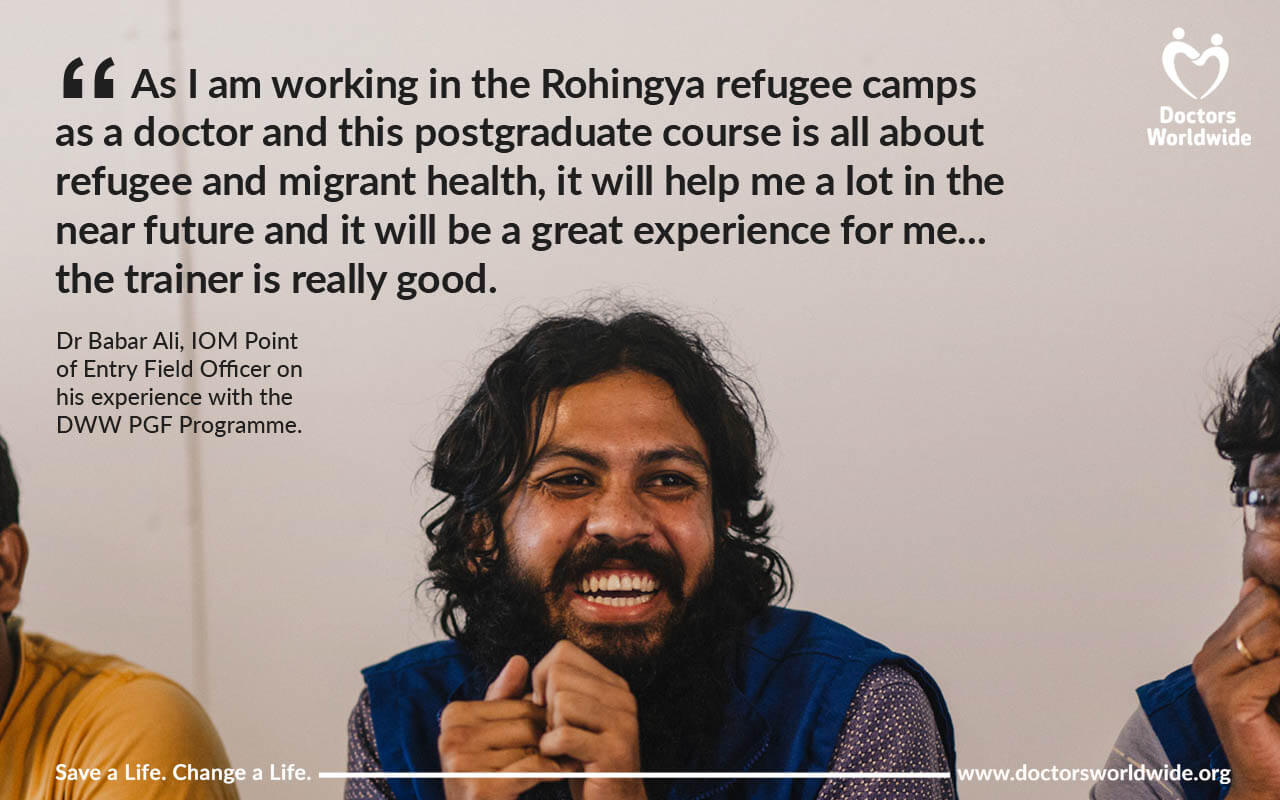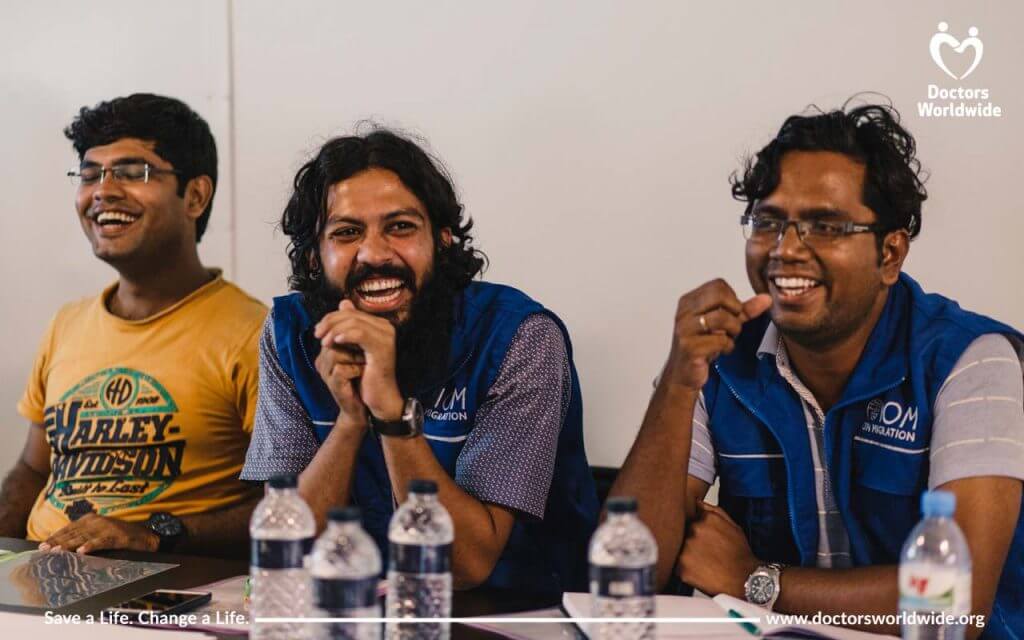The 2018-19 PGF (Postgraduate Fellowship in Refugee and Migrant Health) Programme in Bangladesh aimed to improve and strengthen the quality and delivery of healthcare provided to Rohingya refugees and local host populations at health facilities primarily located in camps around Cox’s Bazar. The 13-week course programme was specifically designed to help local doctors working in humanitarian settings to improve their clinical practice. After it’s successful completion between 2018-19, the project has now been updated and will run again in Cox’s Bazar, starting in March 2021.
Video Interview Transcript with Dr Babar Ali, a healthcare worker in the Rohingya refugee camps in Bangladesh who participated in Cohort A of our PGF Programme, and now works with IOM as a Point of Entry Field Officer.
What made you decide to work in the Rohingya refugee camps?
After finishing my degree, I was actually looking forward to an exciting job to get to know a few more new things, and it is a great opportunity to work here.
What’s been the hardest thing about working as a healthcare worker in the refugee camps here?
Currently it’s the patient load, there are so many patients here that I have to consult. The daily consultation of this health post is nearly 170-180 per day so it’s really tough.
How has the DWW Postgraduate course helped you & why did you decide to do it?
This is another great thing actually that happened to me this year. I was looking for something like this, and as I am working in the refugee camp as a doctor and this postgraduate course is all about refugee and migrant health, it will help me a lot in the near future and it will be a great experience for me.

Has there been one patient or one incident in the Rohingya refugee camps that has really hit you or affected you emotionally?
There was a small landslide near my health post two months back. 6 children were stuck there, and it was really scary. They were actually very small children, luckily nobody was injured that much but it may turn into something more disastrous.
How can people help and what do you think you need as a healthcare worker in order to increase your capacity in the Rohingya refugee camps?
Increase my capacity? A fellowship like this, maybe some more training? Maybe for now some more manpower for my health post.
What have been the top three diseases that you find when working in healthcare in the refugee camps here?
Diarrhoeal disease is very common. Common colds and skin diseases.
Has there been a healthcare training programme like this Postgraduate Fellowship before that you’ve had access to?
No – it’s something new? – it’s the first time yeah, it’s something new.
After the first week of training what have you learnt already that you’re putting into practice as a healthcare worker?
I know a lot more about triaging now, I’m very confident about it, and I’ve got to know more about communicable and non-communicable diseases – all the topics that were covered in the first lecture and, the trainer, he is really good.
Would you recommend more of your fellow doctors/healthcare workers to take part in the Postgraduate Fellowship programme?
Definitely, definitely.
/
Thank you to Dr Babar Ali for giving us his time and offering some insight into how the PGF Programme has benefited his role as a healthcare provider in the Rohingya refugee camps.
Read more about our work in Bangladesh / Support Doctors Worldwide.
Make sure to share this article with your friends and family, follow us on social media (twitter, facebook, instagram, linkedin) and subscribe to our mailing list below for regular updates and campaigns


